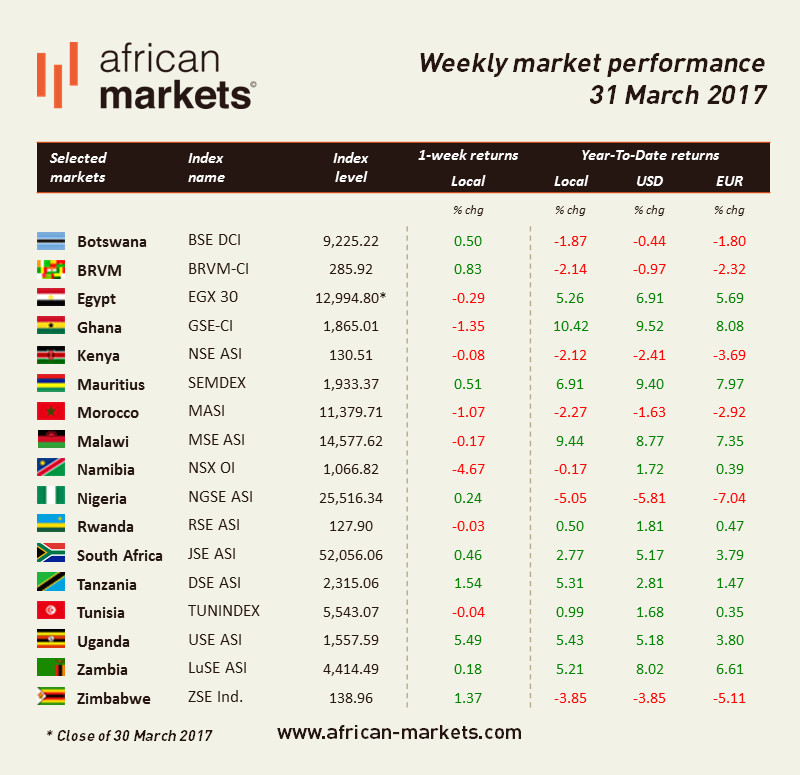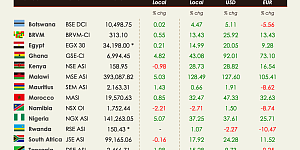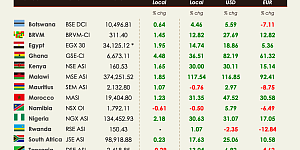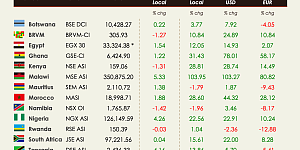Good performance on African markets this week with the majority of markets closing on a positive note or flattish versus the previous week.
The JSE gained 0.46%. On Thursday night, President Zuma performed a reshuffle of his administration removing the highly-regarded minister of Finance Pravin Gordhan from the government. The move sent the rand from R12.80 per dollar on Thursday evening to R13.60 per dollar by early Friday morning. Gordhan has been replaced by Home Affairs minister Malusi Gigaba. Gigaba seems to have little financial or business experience. This represents the fourth change of finance minister in 15 months in the country. The main risk from the cabinet reshuffle is deteriorating fiscal consolidation. The replacement comes as rating agency Moody’s is due to announce its decision regarding South Africa credit rating in the first week of April. Fitch ratings already stated that cabinet reshuffle signals a change in policy direction and it could result in a review of sovereign ratings.
In the meantime South Africa’s the Monetary Policy Committee decided to keep the repurchase rate unchanged at 7.0%. The Committee believes the inflation outlook has improved. However, the risk to the inflation forecast has been affected by the reaction of the exchange rate to the current elevated levels of political uncertainty. The MPC thinks we may have reached the end of the tightening cycle but it would like to see a more sustained improvement in the inflation outlook before reducing rates.
The IMF urged Nigeria on Thursday to remove its remaining foreign exchange restrictions and eliminate the multiple currency practices. IMF expects Nigeria’s economy to expand by 0.8% this year. Current restrictions imposed by the central bank are forcing businesses to buy dollars required for imports for a premium on the rate available on the black market. The NGSE ASI gained 0.24%.
The GSE lost 1.35%. Ghana’s central bank cut its benchmark interest rate on Monday by two percentage points to 23.5%, seeing signs inflation was trending downwards. The size of the rate cut was a surprise and the move may help spur lending and business activity in an economy which has been suffering from falling commodity prices. The central bank has a medium-term inflation target of 8%t, plus or minus 2%.
This week marks the preliminary launch of the new budget in Egypt. In its weekly meeting, the Cabinet approved the general budget and the government’s investment scheme for the fiscal year 2017/2018. Targeted revenues amount to EGP 830 million in the upcoming budget, up 27% from the previous year. General expenses will increase 19.5% to EGP 1.2 trillion due to higher financial investment allocations. Such investments are expected to help boost economic activity and enhance infrastructure. In parallel, the Egyptian minister of finance announced on Thursday that the customs exchange rate for the US Dollar will be lowered in April to EGP 16.5 down from EGP 17. Change will be effective from 2nd April. The EGX30 lost 0.29%.










































